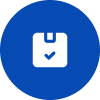Certified Addictions Counselor Curriculum & Syllabus
Curriculum Overview
TAA 100


Understanding Addiction & Treatment Knowledge (80 hrs)
Addiction history, treatment models, dual diagnoses, pharmacology, behavioral addictions, and human development theories.
Overview of addiction and treatment/history
Understand and apply The Disease of Addiction and treatment options and modalities (overview)
Understand Etiology/Causation of Addiction and dependence liability
Involvement and Treatment of Family in Recovery
Understanding Other Substances and Behavioral Addictions
Understand and apply Differentiation between Tolerance vs. Dependence markers
Understand and apply basic pharmacology principles
Understanding the Relationship of Addiction to Health, Crime, and Other Social Problems
Understanding additional Treatment Components
Use of Support Groups
Understanding how human development and cognitive abilities form and relevancy to addiction
Understanding when addiction treatment protocols are necessary
Understand Dual or Triple Diagnoses (mental illness, HIV, mental disability)
Gain Knowledge of History of Addiction and/or Addiction Treatment
Apply the Models of Treatment/Evidence Based Progress
Pharmacology and Physiology (including alcohol) 45 hours specific
Learn Psychoactive drugs, toxic and therapeutic effects/uses
To gain knowledge in the Physical Aspects of Addiction, Brain Science
Signs, Symptoms, Progression of Addiction
Types of Service Modalities (residential, outpatient, etc.)
Understanding human development theories: Lifespan, Role Theory, Self-Actualization, Self in Relations, Attachment Theory, etc.
Understanding Nature vs. Nurture Concepts
TAA 101


Documentation (15 hrs)
Intake, assessment, clinical notes, summaries, privacy laws, and record-keeping best practices.
Utilizing Assessment Tools, Assessing Treatment Signs and Progress
Understanding Client Intake Procedures
Creating Proper Clinical Documentation
Understanding Privacy & Confidentiality
Understanding how to engage clients in the treatment process
Reports/Record Keeping/Records Management
Utilizing Client Screening Tools (those currently in use)
Understanding and Utilizing Discharge or Transfer Summaries
Understanding Electronic Health Records/Technology
Creating and Generating Progress Notes
Creating Psychosocial Summaries
TAA 102


Counseling Theories & Techniques (80 hrs)
Individual, group, and family counseling skills, motivational interviewing, group dynamics, and therapeutic alliances.
Client Progress Assessment and Response
Creating a Therapeutic Relationship with the client
Demonstrating Mirroring, Reflecting Listening, and Paraphrasing situations with the client (oral presentation/role play)
Applying Evidence-based Practices
Understanding Transference, Counter Transference
Demonstrating Communication Styles; Challenging, clarification, Reflection (role play)
Create and Understand Group Intervention
Understanding Group Therapy Dynamics
Application of Life Skills and implementation of problem-solving techniques in Group settings
Creating Safe Space in a Group
Understanding Group Intervention Techniques
Understating the differences between educational, psychoeducational, therapeutic, and self-help groups
Developing Counseling Theories/Techniques
Demonstrating Active and Empathetic Listening Skillset
Developing a Therapeutic Alliance with the client in 5 steps
Understand the relevance of Individual/Group/Family Counseling
Demonstrating Motivational Interviewing Techniques and 3 effective questioning techniques (oral presentation/role play)
Types of Treatment Programs/Levels of Treatment
Knowledge of Counseling Theory versus Counseling Practice
Creating Counselling Techniques in group settings
Establishing a therapeutic relationship setting
Creating and Demonstrating life skills in Group Techniques
Understanding Counseling Theory
Creation of group curriculum
TAA 103


Application to Practice & Professional Growth (50 hrs)
Crisis intervention, ethics, leadership, burnout prevention, and cultural competence.
Care for the Caregiver/Self Care
Understanding your limitations as a counselor
Demonstrating Crisis Intervention/Verbal De-escalation
Understanding Differences between Individual, Group, and Family Counseling Techniques (role play)
Understanding Management and Leadership Skills
Understanding Models of Treatment
Understanding Rules and Regulations that Govern Full Continuum of Services and Referrals
Demonstrating Supervision Techniques (role play)
Understanding Wellness, Alternative Therapies, Nutrition
Demonstration of Motivational Interviewing Techniques
Understanding Burnout and personal wellness
Understanding burnout and compassion fatigue
Understanding Ethics and Ethical Decision-making
Understanding Laws Governing Privacy, Confidentiality, and HIPAA
Understanding Medication-Assisted Treatment
Demonstration of Observation and Communication Skills (role play)
Demonstrating Knowledge of Special Population Needs/Cultural Competence
Understanding Research/Translating Research to Practice
Care Coordination
Demonstration of Trauma-Informed Care Approach
TAA 104


Treatment Planning & Special Populations (30 hrs)
Personalized treatment plans, evidence-based protocols, and serving diverse, high-risk populations.
Understanding Correct Client Placement Criteria
Understanding Drug Court/Correction-based Treatment/Policy/Theory
Utilizing Evidence-Based Practice (EBP) Treatment Protocols
Understanding the needs of Women, LBGTQ, Indigenous Populations, Geriatric, High-Risk populations
Understanding Medication-assisted Treatmen
Overcoming Barriers to Treatment Progress
Understanding Mental health, dual diagnosis/co-occurring disorders
Following Treatment Goals and Measuring Success
Developing Individualized Treatment Plans
Enhancing Client Choice/Client-Directed Care
Understanding Youth/Adolescent needs
Creating the proper Intake/Orientation to Treatment
Creating On-going Assessment
Creating Stages of Change and Treatment Goals/Interventions
Treatment Planning/Models of Treatment
TAA 105


Clinical Evaluation (35 hrs)
Assessment tools, DSM criteria, detox protocols, and co-occurring disorder screening.
Demonstrate how to assess drug and alcohol addiction
Understand Addiction & Human Growth/Development
Understanding Client Orientation
Assessment Instruments, Procedures, and Techniques
Understand how to Client Match to Service Array
Ability to Utilize DSM IV/Diagnosis Criteria / ASAM
Other Substance & Behavioral Addictions – Gambling/Smoking/Food
Understanding and Applying Risk Factors/Risk Assessment/Risk Management
Utilizing Screening/Assessment for Dual Diagnosis/Co-Occurring Disorders
Urinalysis and Other Biological Assessments
Understanding the Tools of Assessment
Demonstrate the Addictive Process and Readiness to Change Scale
Knowledge and use of Client Assessment and Screening Tools
Creating and Demonstrating Client Engagement
Understanding Detoxification Protocols
Understanding Motivational Interviewing
Applying Screening Instruments, Procedures, and Techniques
Understanding Signs/Symptoms/Stages of SUD, Active Use and Withdrawal
TAA 106


Client, Family & Community Education (50 hrs)
Adult learning theory, family interventions, cultural diversity, domestic violence, and life skills training.
Understanding and Applying Adult Learning Theory
Creating Client Education and Family Goal Setting
Understanding Co-Dependency and Moral Development
Understanding Domestic Violence
Knowledge of self-help groups, educational, psychoeducational, and therapeutic groups, and demonstration of each
Understanding and family interventions
Knowledge of family counseling techniques
Understanding Victim vs. Perpetrator Counseling
Knowledge of Anger Management Skills
Changing Criminal Behavior/Criminal Thinking Errors/Offender Treatment
Understanding Cultural Diversity/Special Populations
Knowledge of HIV/TB/Hepatitis C
Demonstrating Application of Life Skills
Understanding and Demonstrating Theories of Counseling Techniques in the Family vs. Group and Individual
Toxicology
TAA 107


Ethical, Legal & Professional Responsibilities (45 hrs)
Code of ethics, legal guidelines, boundaries, and organizational ethics.
Understanding Boundaries / Transference
Understanding Cultural Competence, supervision, and professional development
Understanding Policy in Human Services
Record keeping in terms of legal and ethical necessities
Understanding Relationships / Dual Relationships
Understanding client welfare is a primary concern
Understanding the relationship between referral sources and outside sources, counselors, and organizations
KKnowledge of Computer Ethics and online record keeping CRMS
Understanding and Application of Ethical Decision Making / Code of Ethics
Understanding Organizational Ethics
Demonstration of consent versus negligence
Understanding and Demonstration of Privacy / Confidentiality / HIPPA/Disclosure
Understanding Sexual Misconduct
Demonstrating Boundaries in the Therapeutic Relationship
Understanding the sensitive nature of financial issues of the client
TAA 108


Telehealth (15 hrs)
HIPAA-compliant platforms, documentation for online sessions, and telehealth protocols.
Understanding Telehealth
Understanding HIPAA compliant software programs
Understanding Limitations of Telehealth
Knowledge of DEA guidelines for prescriptions
Knowledge of Medicaid and Private pay guidelines
Understanding Health Privacy Rules
Understanding client portals and EMR systems
Knowledge of Covid 19 Exceptions, considerations, and new models
Creating Documentation for online sessions
Knowledge of SAMSHA Guidelines
Demonstrating Correct reporting techniques
Facilitating Resources/links for more information
TAA 109


Case Management & Referral (45 hrs)
Care coordination, community resources, confidentiality, and outcome evaluation.
Creating Advocacy/Liaison Activities
Creating Client Referrals and service platform coordination
Understanding Continuum of Care/Placement and aftercare follow up- follow-through
Following the Referral Outcome/Evaluation
Understanding Special Population Needs
Understanding Case Management Roles and Functions
Creating Community Resources/Services
Creating and Implementation of Consultation with other Professionals/ Self-help Groups
Understanding and Utilizing Managed Care Systems
Creating the proper Service/Care Coordination/Collaboration
Delivery & Requirements

Format
100% online, self-paced

Duration
Complete in 3–6 months (full access for 14 months)

Assessments
Quizzes, role plays, and final evaluations (70% passing grade required)

Accreditation
Accepted in the USA, Canada, EU, and 25+ countries (IC&RC & CACCF standards)
Two Flexible Ways to Train
We know every student’s goals and budget are different. That’s why we offer two options:
Full Certification Track
$4,997 one time
Full Certification Track
All 10 TAA modules included (445 hours)
Board-exam ready
Save over $500 compared to purchasing separately
14 months access, go at your own pace
Optional practicum included
Monthly Module Track
$499 per month
Whats Included
Get one module every month
Easy spaced out payments for financial flexibility
Fully accredited hours that count toward the complete certification as you learn
Still Have Questions?
Our Admissions Counselors are here to help.
Call 1.800.706.0318 or [click here to talk to a program advisor].